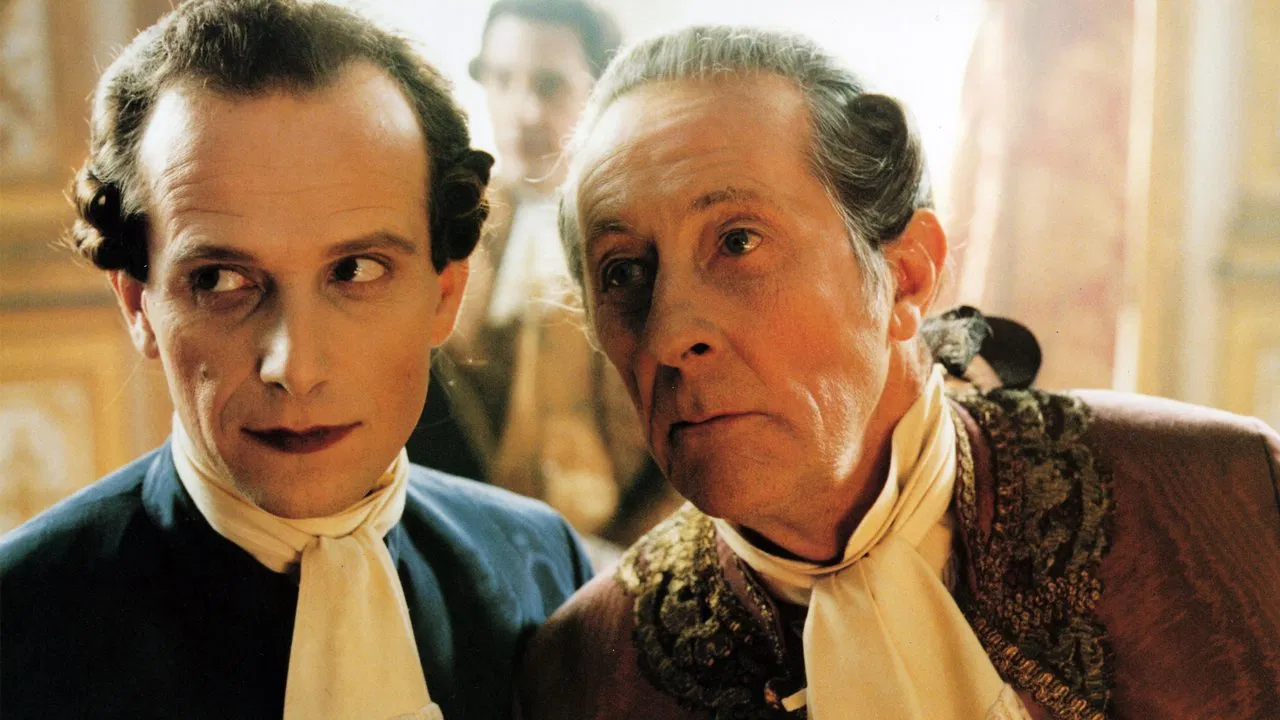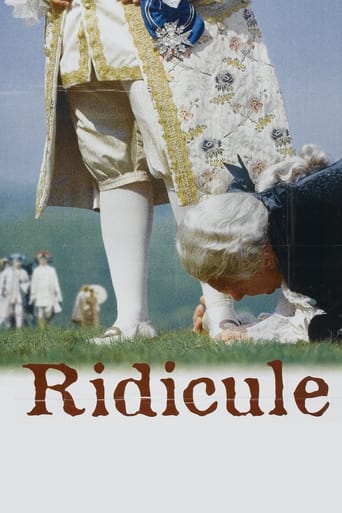

Instant Favorite.
... View MoreFrom my favorite movies..
... View Moreif their story seems completely bonkers, almost like a feverish work of fiction, you ain't heard nothing yet.
... View MoreOne of the best movies of the year! Incredible from the beginning to the end.
... View MoreFor some reason I didn't take to this film, and I don't precisely know why. This is my attempt to explain my distaste. I find this period in French history distinctly off-putting. All the films set in this place and during this period turn me off. There always seem to me far, far better things to do than sit my way through them. The liaisons are not enthralling, and never strike me as threatening or risky in the slightest.Both females here were very attractive, however, and pleasant to look at. None of the men struck me as anything but hideous, monstrous and grotesque. That even includes the hero, although he was more acceptable than the rest of the bunch. Not exactly Delon or Belmondo, however. Perhaps he was deliberately chosen to be uncharismatic. With regard to the others, their fat or wizened faces, clothes, over-fed figures, giggles and lipstick merely made me want to look away. Also. the vaunted wit never seemed to me very witty. In fact, it seemed quite feeble. I assume it always was. The moral of the story, and of the impending revolution, was unsubtle and unengaging. We're agreed the set-up was rotten: what else is there to say ? Capitalism continues, though its frivolous depravity is not quite so public. The best review comes from a Frenchman, from Paris, who points out that in many ways the movie is just not historically correct. Somebody also writes that the connection between mosquitos and malaria was not discovered until 50 years later. It was worth seeing for the general ambiance, and the fancy clothes, just, but it'll be a long time before I watch it again. A lot of effort clearly went into it.
... View MoreTo get royal backing on a needed drainage project, a poor French lord must learn to play the delicate games of wit at court at Versailles.Now, I know what I am supposed to enjoy about this film is the game of wits played between all these wealthy French folks. And to a certain extent I do. I really enjoyed the rhyming contest, for example. And it made me wonder how the translator handled that, because the subtitles rhymed, but could not possibly have matched the original French.But what I actually liked most was the diving suit. That may be stupid, but as a genre fan, I love seeing makeup and costumes, and this old suit really looked great... sort of a sea monster meets robot look to it. Very cool.
... View More**Bien sur** the biggest reason to watch this movie is Paris-born blonde Judith Godreche. Not a great actress but oh, that face, and those boobs so generously displayed in period costume. She was twenty-three when the film was shot but looks younger. Mlle. Godreche was to appear opposite superstar Leonardo Di Caprio in "The Man in the Iron Mask" two years after this. Had she been easier to work with and taken a few acting lessons she might have made movies in Hollywood earning ten times what the miserly French would pay. She does not have enough scenes here--one of this ornate and overlong film's several shortcomings.Apart from the obligatory love triangle sub-plot, the story concerns a country gentleman **cum** engineer who decides he must petition King Louis XVI, France's last absolute monarch, to obtain financial backing for his scheme to drain the swamps in his home region and so rid it of the mosquito infestation and fevers that make life there near impossible. While nearing the Royal Palace at Versailles this young man, played adequately if not electrifyingly by Charles Berling, is the victim of an eighteenth century mugging.The hero is next seen at the house of a well-connected doctor, who later agrees to take him in and instruct him in the art of witty repartee which will be his **entree** to the royal court. Played by cinema veteran Jean Rochefort, the doctor as a physician is no better than his times and treats the young man's injuries by thoroughly, almost fatally, bleeding him. The hero, however is well ahead of his time having apparently made the connection between mosquitoes and malaria, at least fifty years before anyone else!The doctor has a beautiful daughter (Mlle. Godreche) but she is betrothed at the film's start to a very wealthy noble not twice but three times her age. The reason why she and her father agree to this union is not credible but it does lead to a brief scene in a notary's office, authentic to the last quill pen, where the three of them hammer out what would today be called a **pre-nup**.Essential for any period film, the **decors**, costumes, makeup all are faultless.After an endless succession of parties, formal dinners, royal audiences and a masked ball, it all works out for the best--apparently. We know from history that the rainwater pools of the Dombe region were significantly reduced in extent and life there improved just after the Revolution. It is worth mentioning that the third side of the triangle is a Pompadour-type character, a political mistress to the King, played well enough given the material by the tall and elegant, forty- something Fany Ardant.
... View MoreRidicule is a French film which takes place in 1783, a few years before Louis XVI lost the ability to wear a hat; where "...in this country, vices are without consequence, but ridicule can kill." The film is about the effect of wit and word play on people's lives and careers. Malicious, mannered and highly enjoyable. Charles Berling, Jean Rochefort, Bernard Giraudeau and Fanny Ardant are excellent. A man would be a fool not to want to bed Ardant, and even more a fool to trust her. The love affair between Berling and his deep-diving sweetheart is amusing and endearing.The film is sumptuously mounted. The dialogue is so clever a knowledge of French might be in order, but the English subtitles do a superb job of conveying the witty, cruel, self-serving word play.
... View More